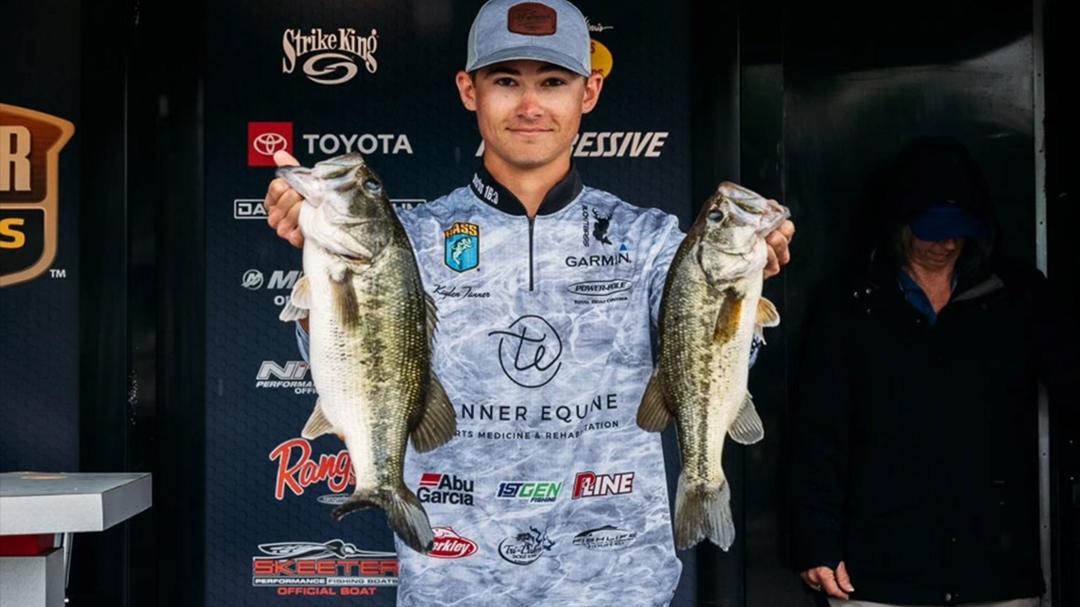Kayden Tanner does not regret his decision to forgo professional fishing and gain veterinary experience with plans to work alongside his father one day.
It was hard for Kayden Tanner to stretch out in his truck, parked in Anderson, South Carolina. But for such an important night of rest, it would have to do.
He did not intend on letting his friend book the Airbnb for their next fishing trip. He laughs about the fail now, but at the time the smell of mold forced him to his makeshift seat bed.
As he worked to get comfortable, weary from the extensive road trip from the central plains of Texas, his mind could not escape the thoughts of the following morning. At just 21 years old, he had climbed the ranks from an amateur fisherman (known as a co-angler) to fish collegiately for two years until he achieved professional status. Now he had the chance to potentially reel in his dream of becoming an Elite Series angler, competing against the highest ranked league. He had even been interviewed by a reporter about this potential feat at such a young age.
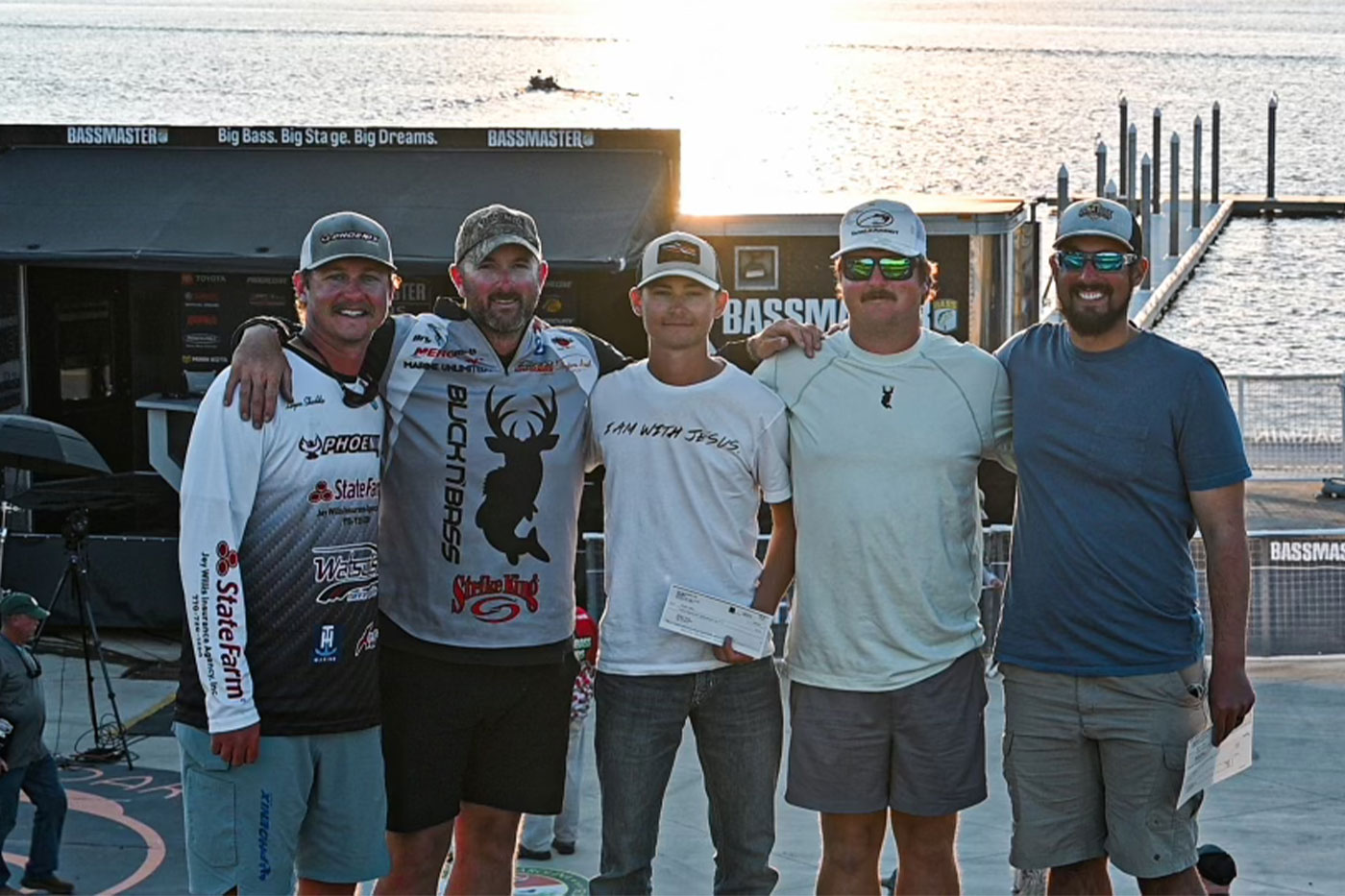
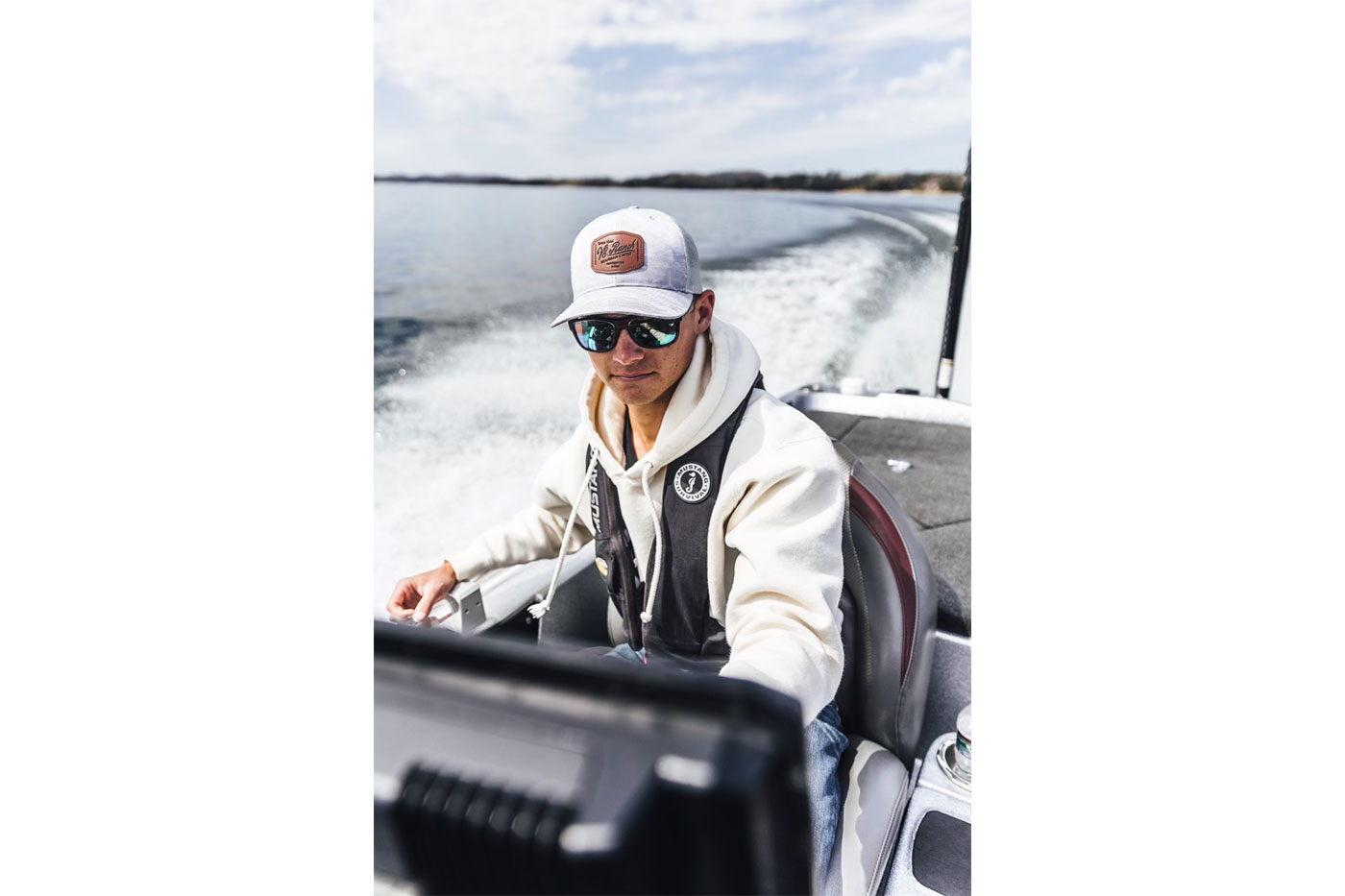
“I was stressed at the time,” he recalled. “It was a lot of pressure.”
The only benefit of his sleeping arrangement was his view of the stars through the windshield, as he prayed:
“Lord, I’m putting this in your hands. Let your will be done. If I’m supposed to be a fisherman for the rest of my life, then that’s what I’ll do. But if I’m supposed to be a veterinarian, then don’t allow me to make it.”
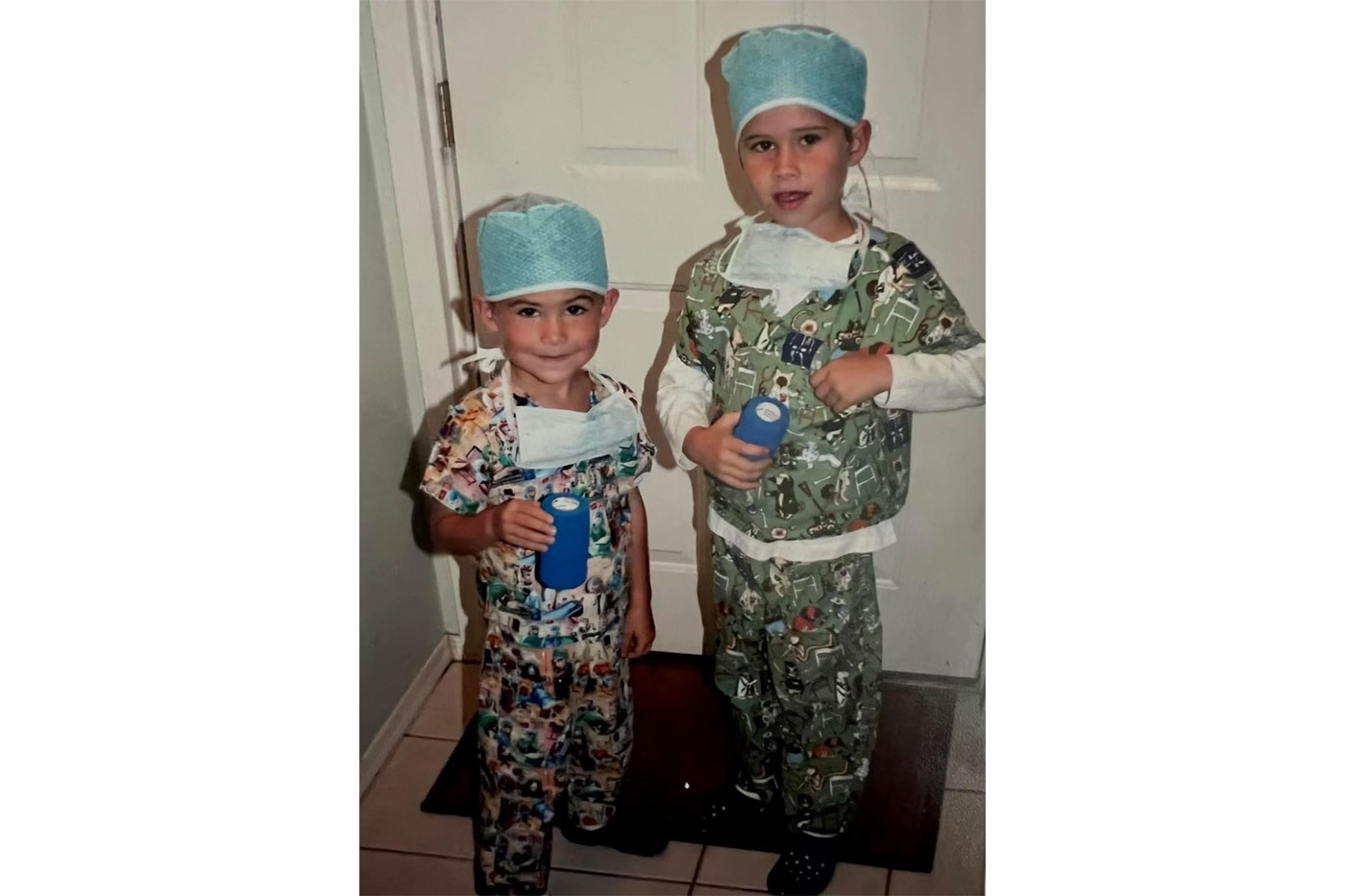
Kayden’s Plan B was a comfortable one. He had already received his acceptance into Texas Tech University’s School of Veterinary Medicine, the first step toward joining his father’s practice at Tanner Equine Sports Medicine and Rehabilitation in Millsap, Texas. Kayden had practically shadowed his dad, Marty Tanner, since he was 5 years old – playing with toys on the floor while Dr. Tanner performed surgery on horses.
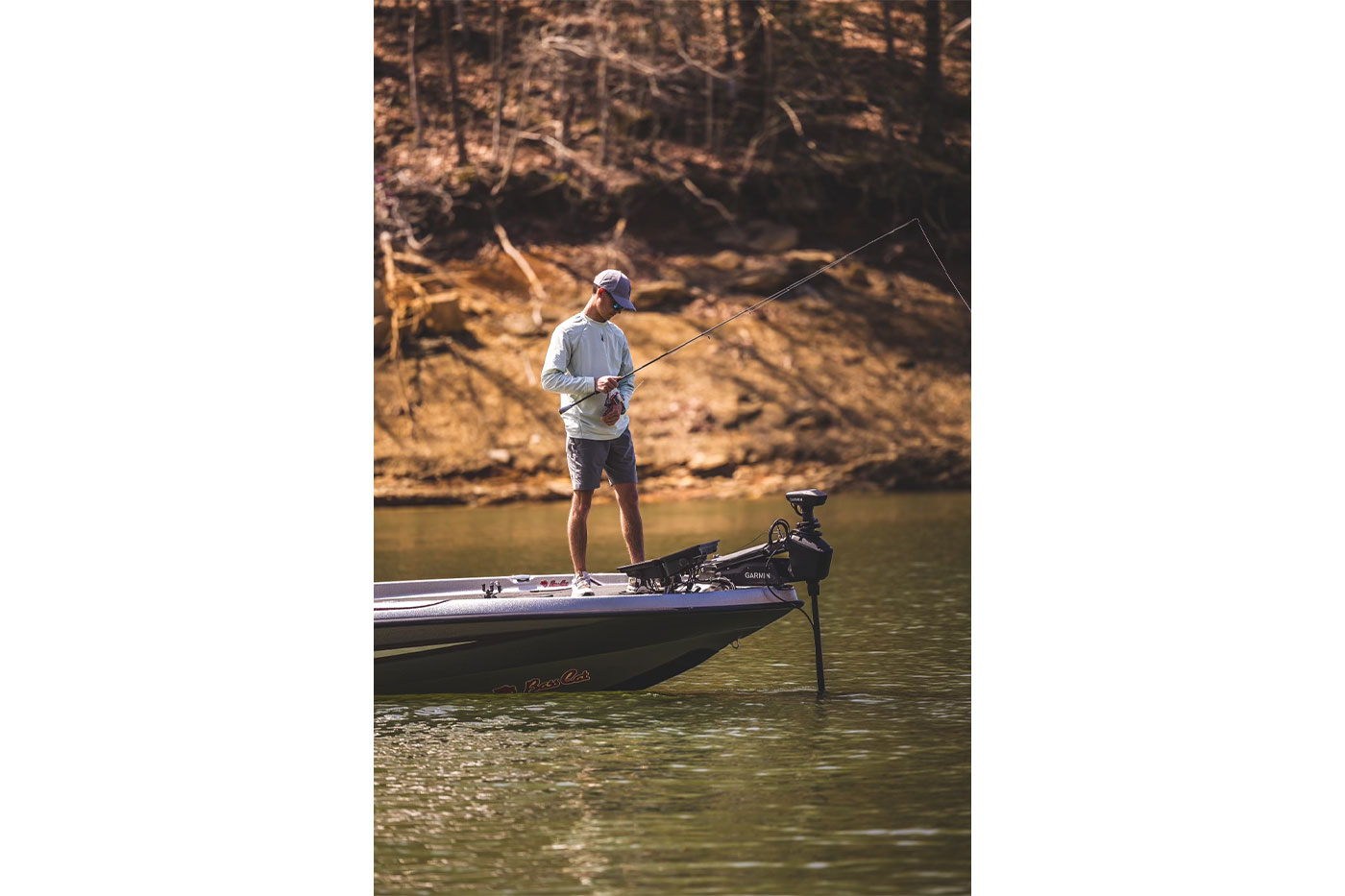
But his other childhood pastime was fishing on four ponds outside his home in Elgin, Texas. He could spend all day by himself on the boat. That passion only grew when one of his father’s practice partners invited a 14-year-old Kayden to fish with him at a professional tournament.
“Ever since then I’ve been hooked,” Kayden mused.
That to say, a lot more than bass was on the line as Kayden closed his eyes that October night in 2022.
Before long, his prayer was answered.
The Catch of His Life
Despite not sleeping in a bed, Kayden felt comfortable heading into the Bassmaster Southern Open. He knew what to expect: bass fishing with a co-angler also competing in their division from the back of the boat. He would keep five of his biggest catches in the live well of the boat, their sizes differentiated by color-coordinated cull tags clamped to their mouths.
At the end of the first day, Kayden was ranked seventh of 187. He just had to remain in the top 10 by day three to become an Elite Series angler.
“I had plenty of room and cushion,” he remembered thinking. “I was sitting good.”
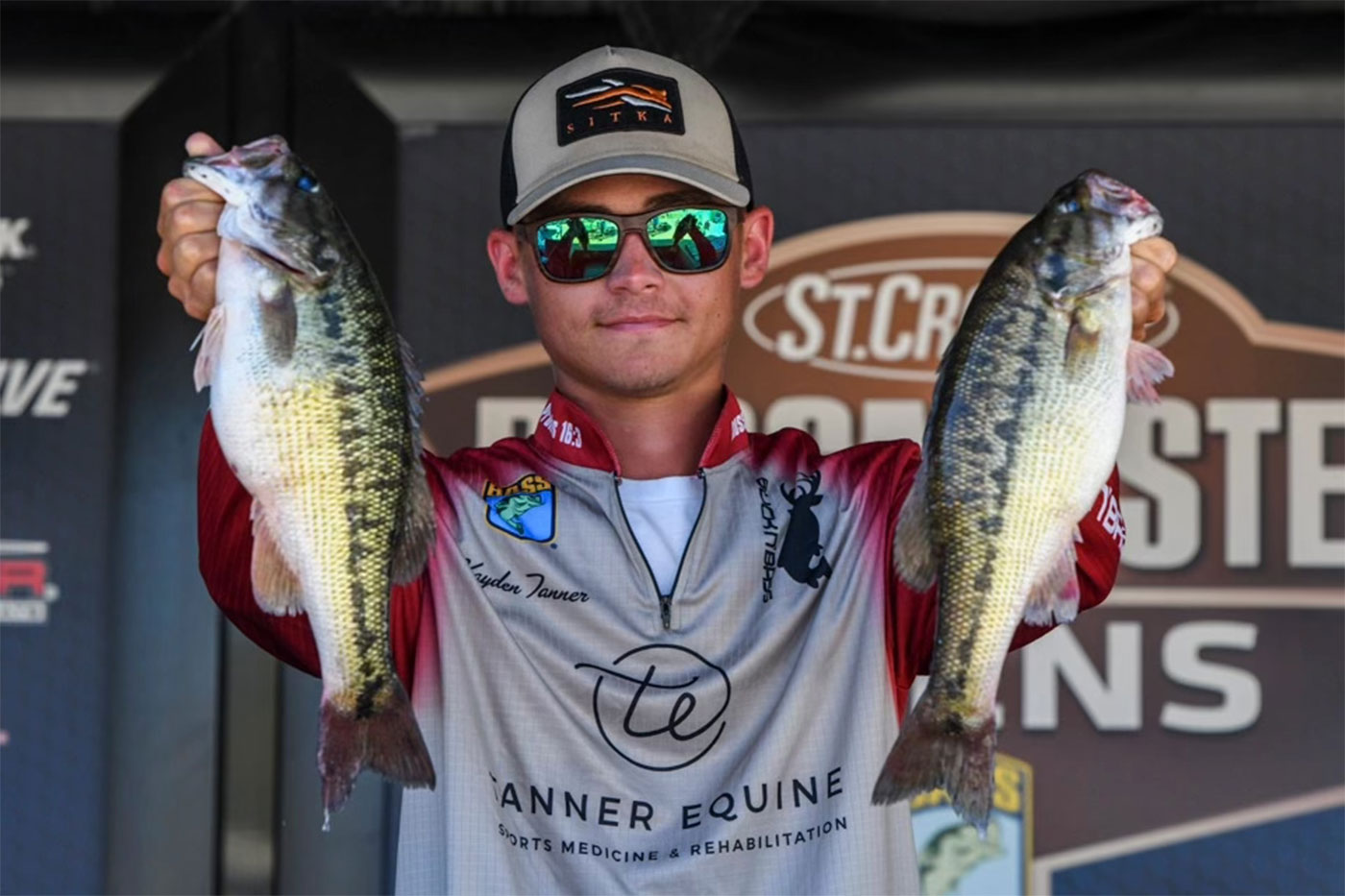
The next day, Kayden wasn’t having as much luck, so he sought out the same spot that yielded his biggest catch day one. Just as he hoped, there were three decent-sized bass swimming there.
Kayden threw his line and it wasn’t long until he felt the all-too-familiar tug that got his heart racing. And for good reason – he had just hooked a 2.75-pound bass.
“When I got it in the boat, I was really excited,” he said. “I knew that was sufficient enough to make it.”
As custom, Kayden reached in his live well and grabbed the blue-tagged bass – the smallest of his fish – and threw it in the water.
He was still reeling from the catch when his co-angler interrupted to ask, “Did you throw the wrong one back?”
Kayden couldn’t answer.
“I just sank to the floor,” he recalled of that moment. He was sick to realize he had switched his cull tags the night before and the color coordination no longer matched his last set. The blue tag actually marked his biggest fish – a 2.5-pound bass – instead of his smallest fish in the live well – a 1.5-pound bass.
What he thought was a game changer was a deal breaker. But he didn’t snap his pole, scream or indicate he was upset at all.
“That tournament just felt different,” he said. “I was comfortable with whatever happened.”
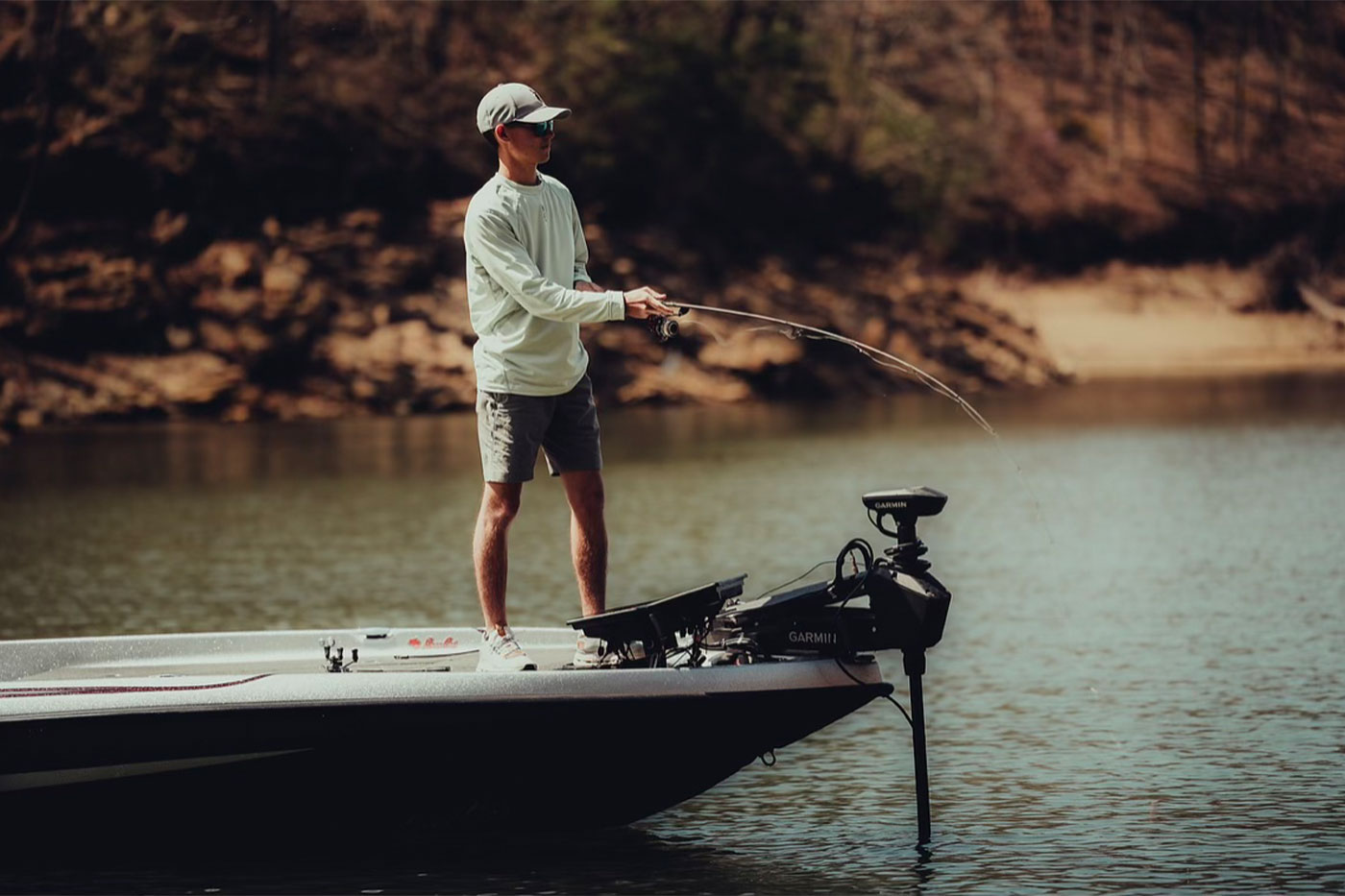
Kayden’s friends tallied the points and remained optimistic he would still make the cut, but he didn’t share the same confidence. Sure enough, once weigh-in took place that evening, he had missed the third-day cut by four ounces.
His parents were confused why they expressed more devastation than he did.
“I was at peace,” he explained. “I’m forever grateful for having those experiences, but that just wasn’t God’s plan for me.
The article that would announce him as the youngest Elite Series angler headlined a near miss instead. Kayden humbly stored his fishing gear, packed his bags and moved to Amarillo.
Cast Into Vet School
Unlike most of his fellow classmates who also began their first year at the School of Veterinary Medicine in 2023, Kayden already knew a familiar face.
Britt Conklin, the associate dean for clinical programs, had previously worked with Dr. Tanner in numerous capacities and was a close friend. Dr. Conklin had reached out to him about Tanner Equine joining their clinical practice partner network, which prompted a father/son campus tour that was in both of their interests.
“Dr. Tanner and I had visited about Kayden and his goals in the past and new he could achieve anything he set before him,” Dr. Conklin said. “His family never pushed veterinary medicine on him, although he had grown up in the middle of one of the most spectacular equine veterinary environments. Kayden and the family came up and visited and it seemed something really clicked with who we were and what our culture was at Texas Tech University’s School of Veterinary Medicine.”
The minute Kayden walked onto the School of Veterinary Medicine campus, he said it felt like home. He quickly became impressed with the school’s mission, centered upon rural and regional communities – both of which he plans to serve at Tanner Equine.
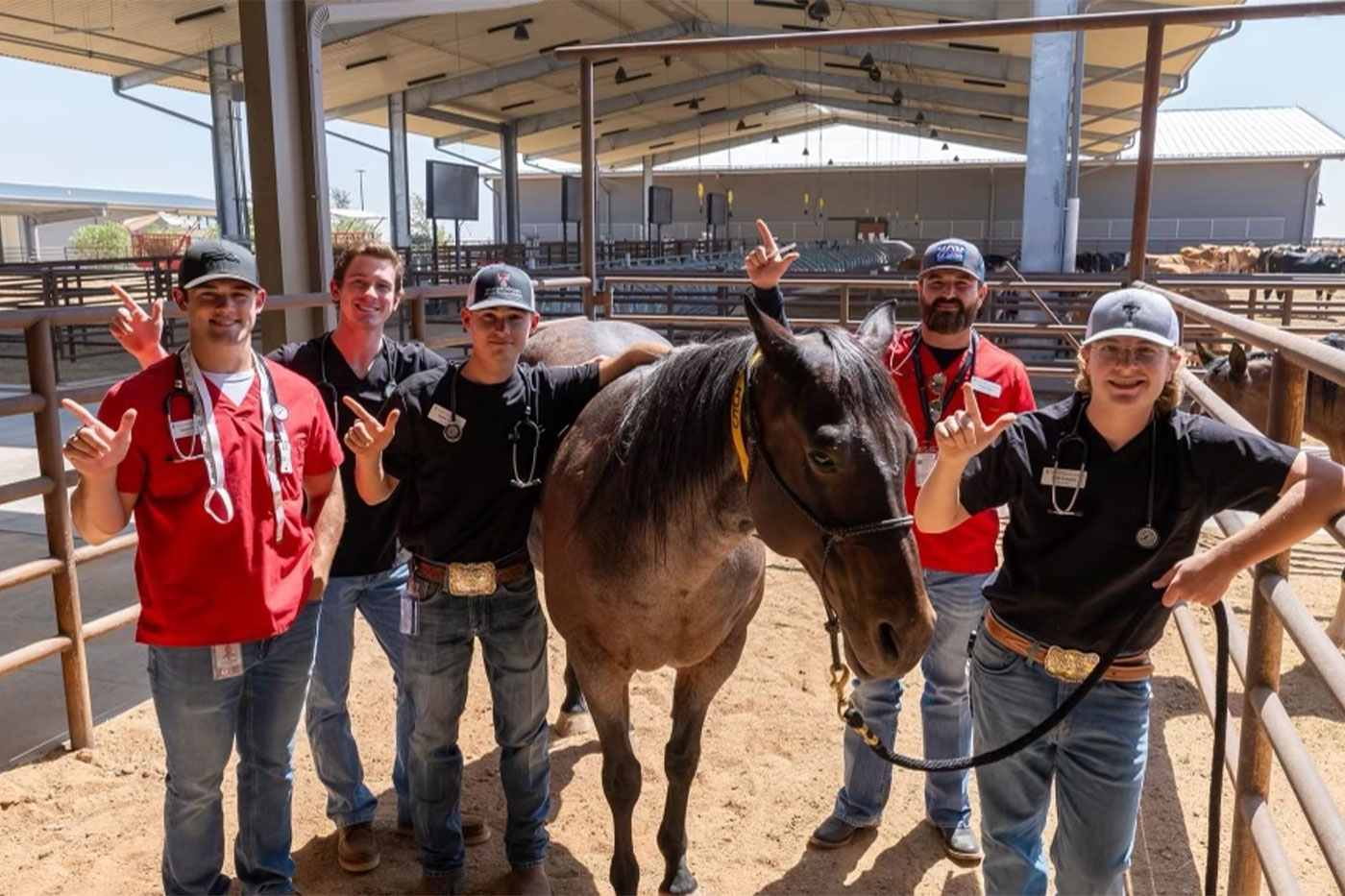
Just as his father has, Kayden wants to aid clients who depend on their livestock to make a living, as well as provide services to local 4-H and FFA chapters.
“Rural living has been good to our family, and I hope to be able to invest back into the communities that invested so much in me,” Kayden explained. “Living in a rural community is like being surrounded by family. It is a place where families remain generation after generation, and being a part of my dad’s practice means I will be serving the children and grandchildren of many clients I knew growing up.”
Dr. Tanner is proud Kayden not only shares his small-town values but plans to continue their family name in the veterinary medicine industry.
“Spending 38 years devoted to a profession that I love and seeing my son choose to continue that is very rewarding,” Dr. Tanner said. “I let him make that choice himself, however. This is a great profession and a great way to give back to others. On the other hand, it is very demanding. I wanted to make sure it was his life decision, not mine for him.”
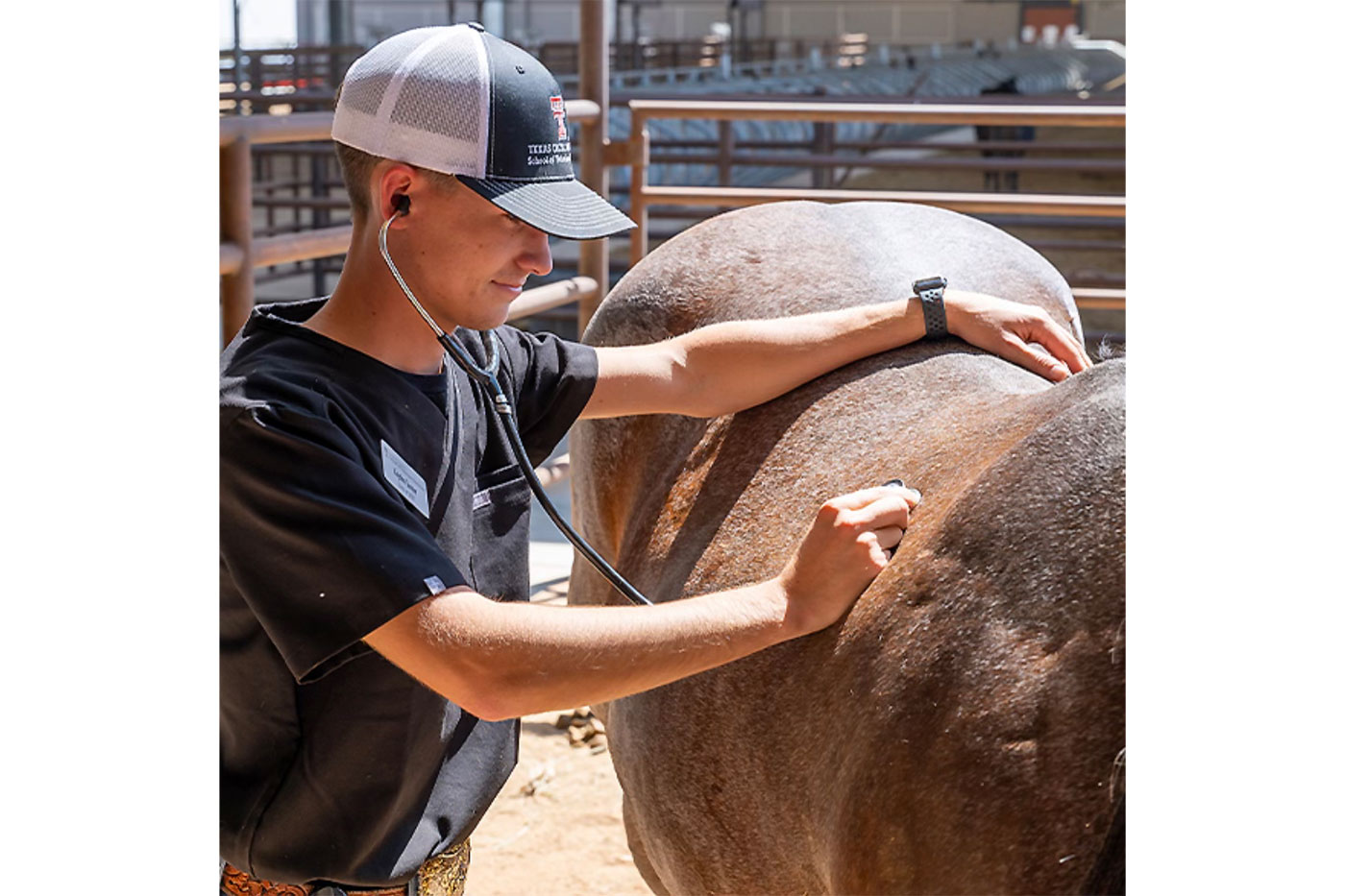
Kayden is fully aware of the more challenging aspects of veterinary medicine, but he is still not deterred. He fully expects to be stopped by locals who have a “quick” question and receive phone calls at all hours. He grew up watching his father navigate these waters but felt inspired by his dedication to his profession and the sacrifices he made.
“I saw the good side of helping others and serving the community,” he recalled. “I learned the importance of professionalism by listening to him on the phone when he would get calls after hours or during family time. I learned that happy clients meant a successful business.
“Was he always happy when the phone rang at 2 in the morning to cut a colic? No, but I watched him get out of bed, work several hours, return home to shower, and go back to work for the day. This exposure taught me about commitment, work ethic and dedication.”
Thanks to this time spent learning Dr. Tanner’s trade, Kayden was well prepared for vet school as far as clinical knowledge like how to jog a horse, scrub a joint and communicate with clients. His classes are further training him to meet the high expectations that come with Tanner Equine, as well as building himself a network of mentors and close friends.
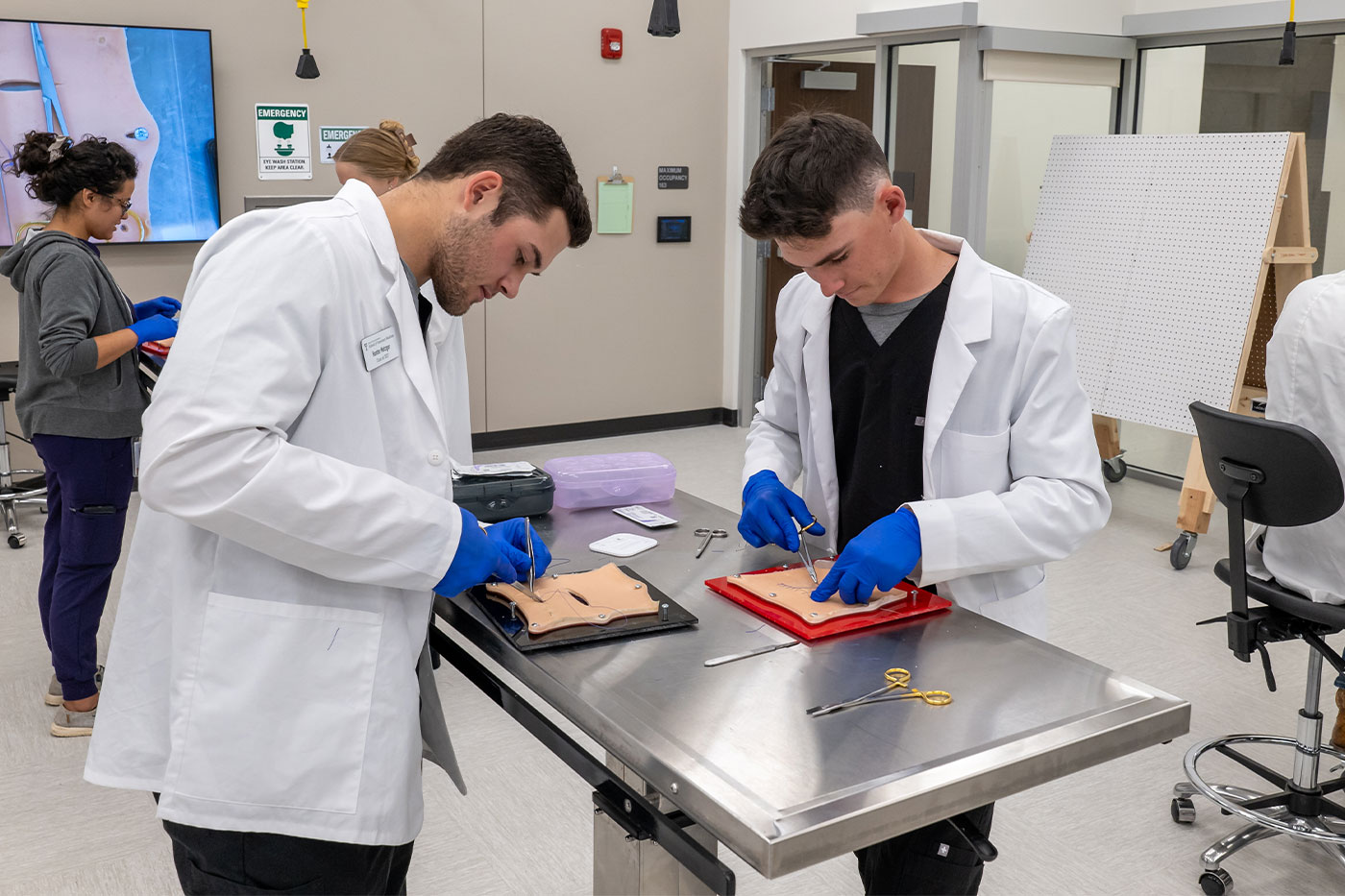
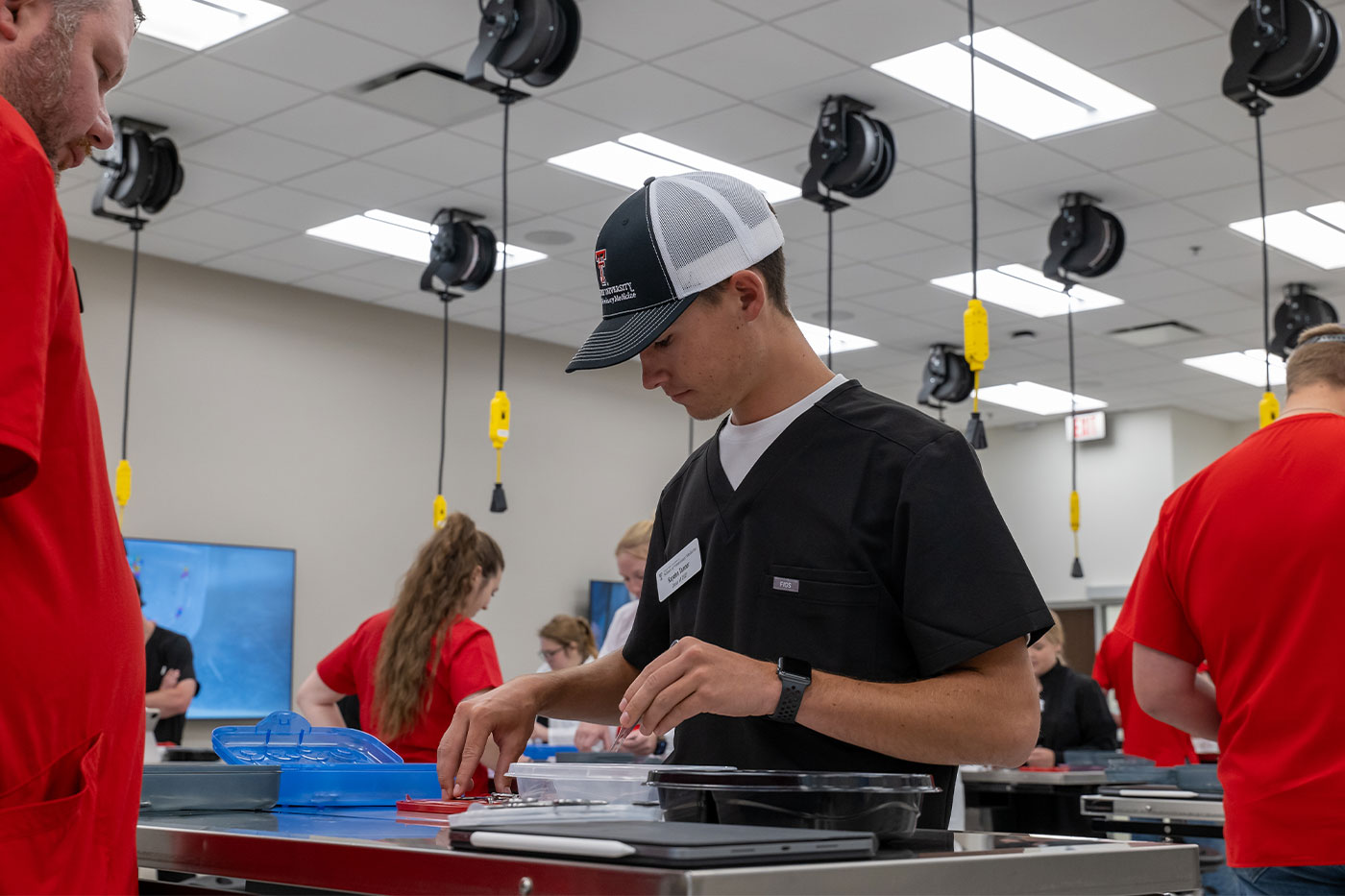
It is the studying that has proven most challenging for Kayden – leaving him only five fishing days since he began classes, versus at least 200 a year before he arrived on campus.
“Dad had kind of prepared me for that,” he admitted. “But when you enjoy learning something, the long study hours are not as hard as they seem.”
Thankfully, Kayden knows just how he will combine his veterinary profession with the competitive spirit he channels on the water.
Keeping with the Competition
One of the benefits of having a father already established in the equine sports medicine industry is the name Tanner Equine has made for itself at the National Finals Rodeo (NFR).
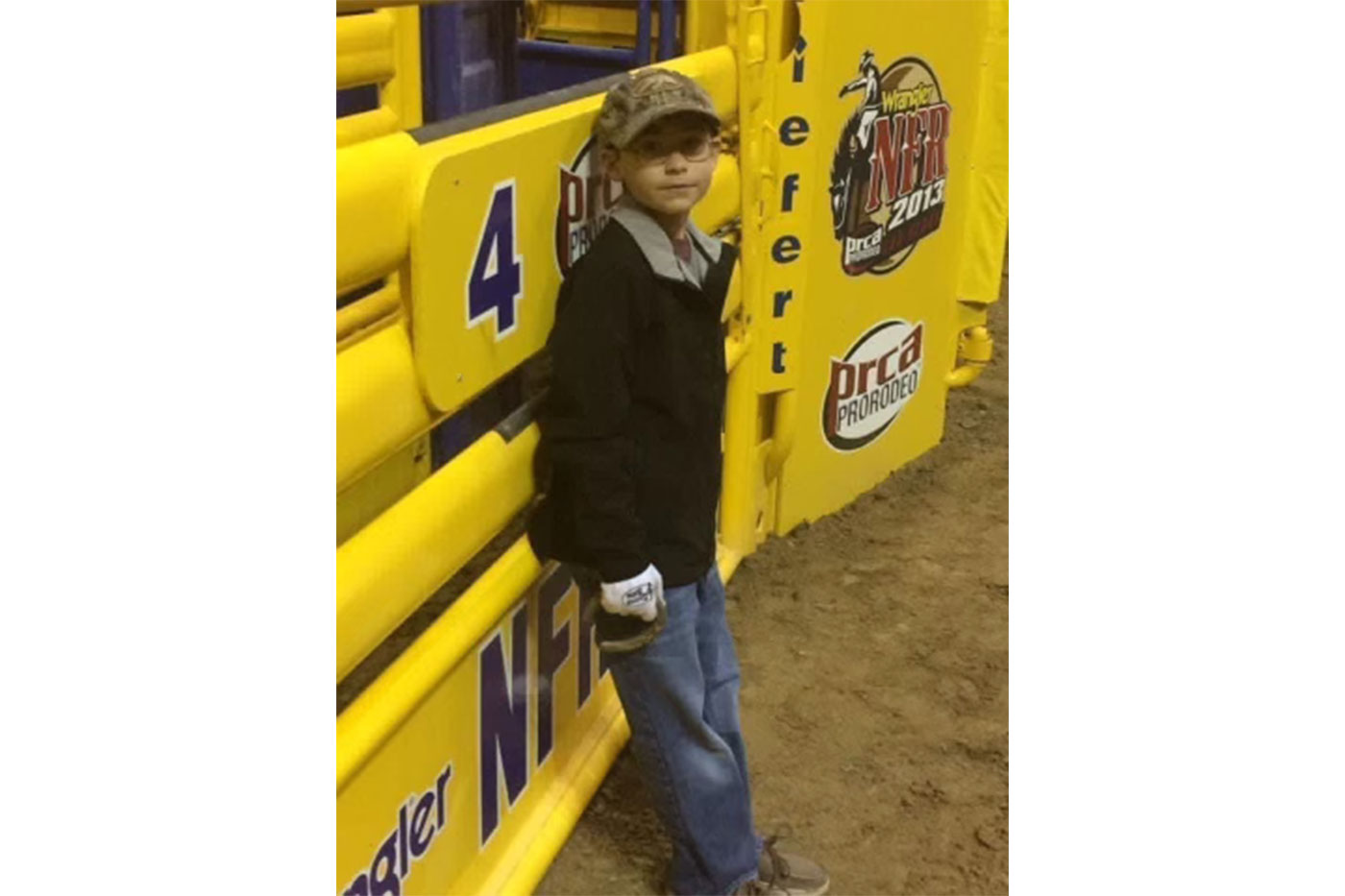
Kayden has attended the NFR ever since he can remember. It became a family affair as they cheered for the large number of horses treated by Dr. Tanner that were competing at the highest level. The Tanners also had the privilege of standing onstage alongside these clients as they were awarded belt buckles for world titles.
“At this level of competition, I learned just how heavily clients rely on their veterinarian,” he noted. “You become part of a team, and their success partly depends on your ability to keep their horse sound, healthy and ready to compete. The work we do makes a significant difference in their performance during each night of the event.”
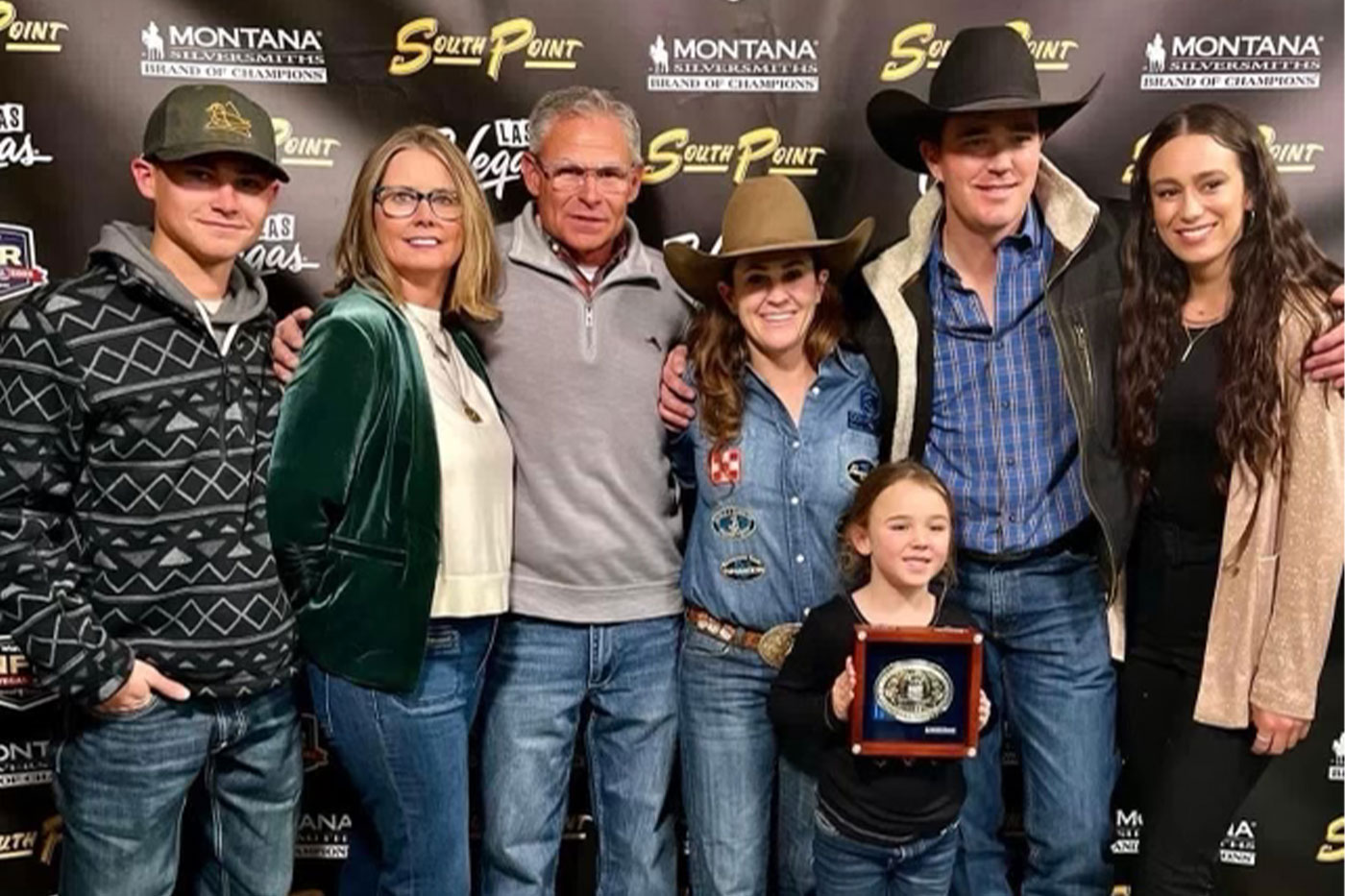
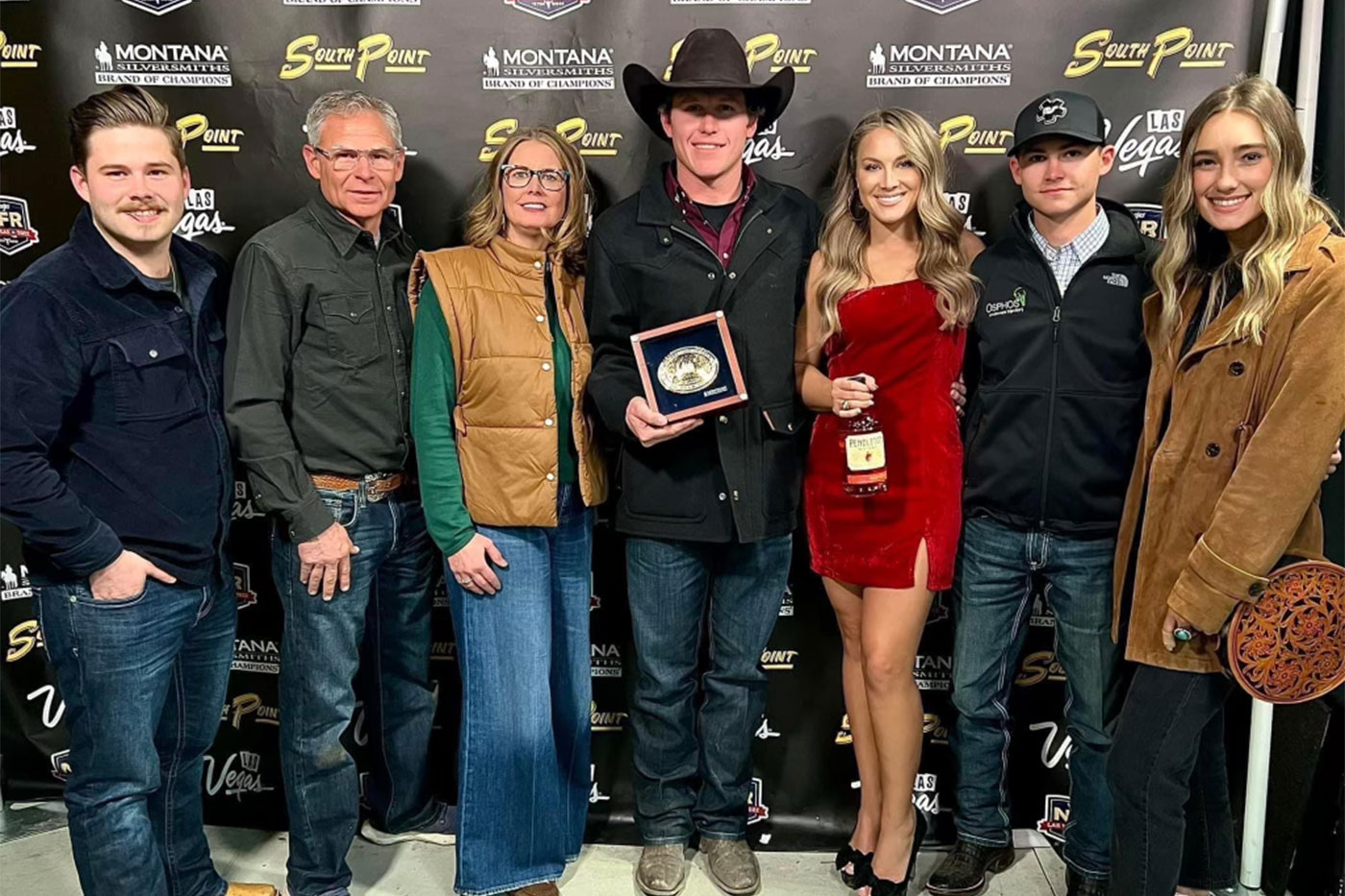
The NFR is hosted annually in the first full week of December in Las Vegas, Nevada, a trip Kayden made at least 12 years in a row. Unfortunately, last year’s NFR was hosted during his first semester of finals.
“I told the people at Texas Tech, ‘We’re going to have to work on that schedule so I don’t miss that anymore,’” he semi-joked. “But, yeah, that was hard.”
In the meantime, Kayden found a similar experience this summer as he worked at Ruidoso Downs Race Track and Casino with Equine Sports Medicine and Surgery (ESMS), a Weatherford-based referral hospital that operates at horse racetracks across the U.S. He had the chance to work on the highest earning quarter horse as well as multiple horses that won races.
“Helping others get to that point, whether they’re riding on the horse’s back or rooting them on from the stands, there’s something very rewarding about it,” he said with a note of pride.
Anchored in Veterinary Medicine
Although Kayden’s experience in Ruidoso was cut short due to flooding and fires, it was the first time he worked for another veterinarian besides his father. He enjoyed it so much he now eagerly anticipates his clinical year in summer 2026.
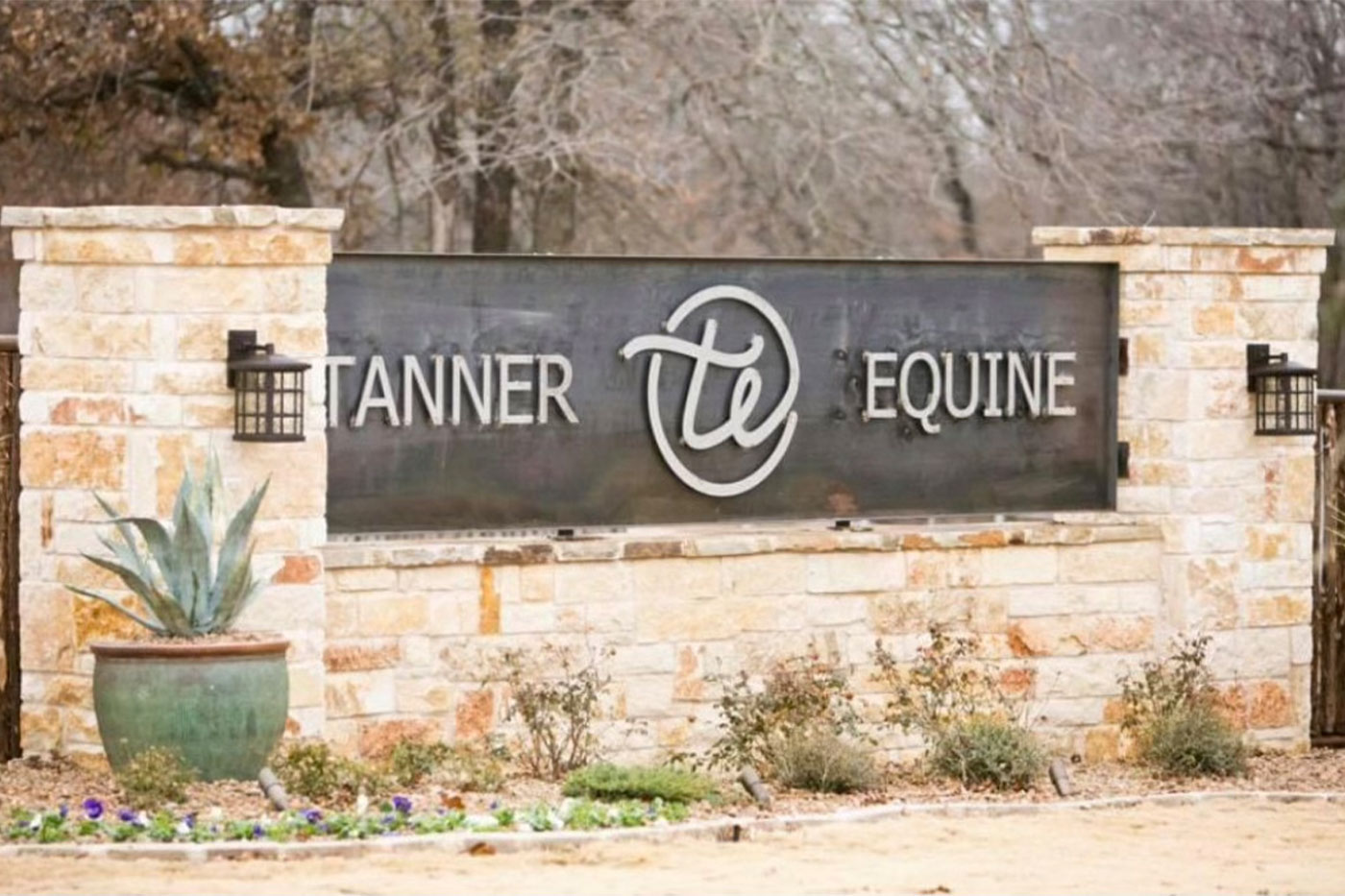
Dr. Tanner is also looking forward to School of Veterinary Medicine students joining him at Tanner Equine for their clinical rotations starting this fall.
“Being closely associated with the Texas Tech School of Veterinary Medicine, I can see how their unique approach ensures the development of these young professionals that other universities do not,” Dr. Tanner said.
He added that veterinary medicine is in capable hands with young people like Kayden, who will continue learning from him long after his 2027 graduation.
Kayden is unsure Dr. Tanner will ever “officially” retire, but he is glad he can ease his workload in the next 10 years or so. Kayden also plans to expand Tanner Equine – eventually offering a surgical facility and hiring more veterinarians.
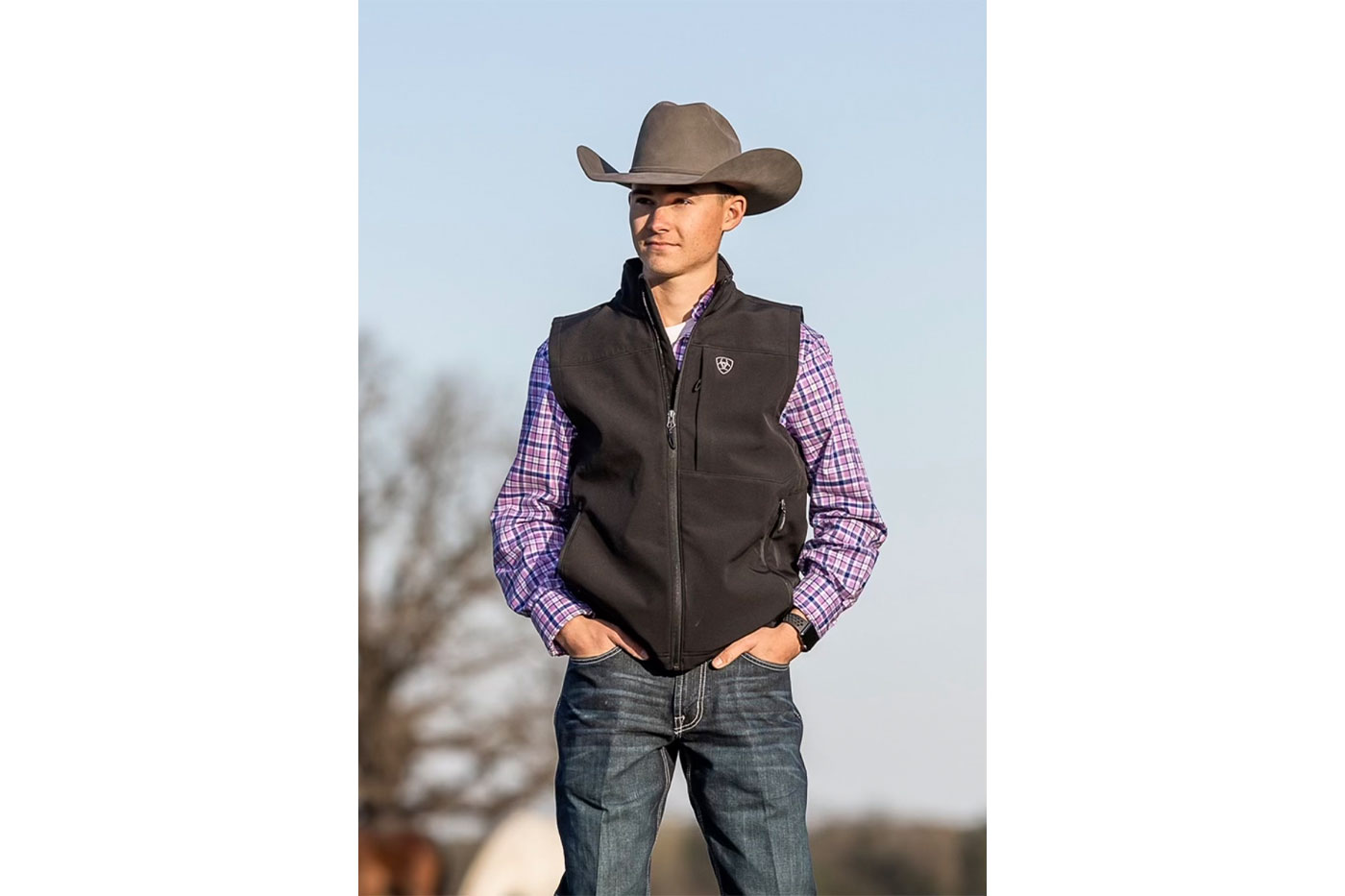
“I am thankful for the support I have from my family,” he said. “I am motivated and determined to make my parents proud and assure my dad that I will take great care of his clients. There is truly no doubt in my mind that the path I am on is the right path for me.”
And it all stemmed from the one that got away – the moment that shut Kayden’s tacklebox but opened his gift to the world.
“I’m so happy where I’m at,” Kayden said, reminiscent of his progress since that late-night prayer in South Carolina. “I mean, it was unfortunate not making the Elite Series, but part of the reason we’re put on this earth is to serve and veterinary medicine is my way to do that. In the end, this is what I’m supposed to do and that all comes with trusting God’s plan and the process.”

